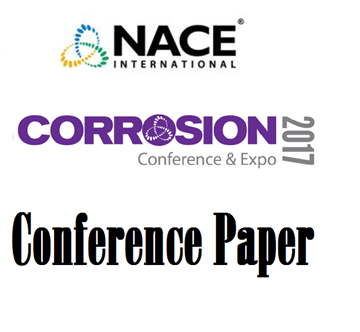Search
08663 Laboratory Studies of Biocide and Nitrate Strategies for MIC and Reservoir Souring Mitigation
Also Purchased
Combined Effects of Microbes and Nitrate on SRB Growth Souring and Corrosion
Product Number:
51317--9425-SG
ISBN:
9425 2017 CP
Publication Date:
2017
$20.00
02034 USE OF NITRATE-REDUCING, SULFIDE-OXIDIZING BACTERIA TO REDUCE SOURING IN OIL FIELDS" INTERACTIONS WITH SRB AND EFFECTS ON CORROSION
Product Number:
51300-02034-SG
ISBN:
02034 2002 CP
$20.00
07512 Corrosion as a Side Effect during Nitrate Treatment of Produced Water and Aquifer Water Injection
Product Number:
51300-07512-SG
ISBN:
07512 2007 CP
Publication Date:
2007
$20.00




